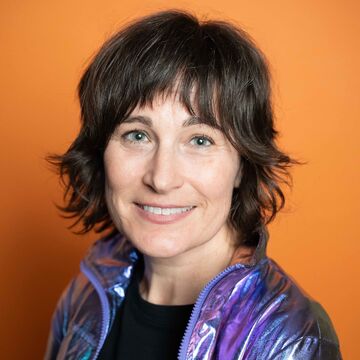

Karen Morris
Professor
Contact
Bio
Education: BA, Anthropology, 1996, Davidson College, NC; MA, Anthropology, 1998, and PhD, Cultural and Social Anthropology, 2005, Stanford University, CA.
Publications: Signs: Journal of Women in Culture and Society, The Queer Precariat In and Out of Higher Education, International Journal of Qualitative Studies in Education, Anthropology News, Studies in Art Education, City & Society: Society for Urban, National and Transnational/Global Anthropology.
Awards: Spencer Foundation Large Research Grant on Education, University of Illinois Award for Creative Activity, Innovation 80 CoGen Grant
Karen Morris is a lesbian mother, cultural anthropologist, and co-founder of The LGBTQ+ Intergenerational Dialogue Project. She is interested in experimental, community-based collaborative research, pedagogy, and social justice work. Earlier in her career, Karen conducted ethnographic research in Côte d’Ivoire, West Africa and Washington, D.C. to explore how transnational news media circulation among Ivorian families with diasporic members shaped the country’s political culture during crisis. Karen’s current work explores intergenerational connection between LGBTQ+ people, with a focus on care, kinship, aging, and activism.
Since its founding in 2019, The LGBTQ+ Intergenerational Dialogue Project has evolved into a hybrid community/research partnership led by LGBTQ+ faculty and social service providers at SAIC, Center on Halsted (the Midwest’s largest LGBTQ+ community center), University of Illinois-Chicago, and University of Chicago. The project brings together racially, socioeconomically, and gender diverse cohorts of LGBTQ+ college students and older adults (60+) for year-long series of bi-weekly themed dialogues, collaborative art-making, and shared meals.